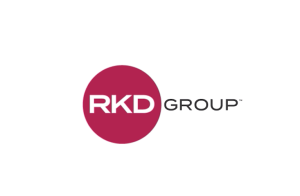A series of lawsuits is causing nonprofit mailers to mull suppressing names of potential donors in New Jersey, as well as removing individuals based in New Jersey from lists of names made available to other mailers.
The complaints, which were filed in the Superior Court of New Jersey Law Division, have been made in reaction to Daniel’s Law, legislation passed in New Jersey in 2020. It prohibits the dissemination of residential addresses of “Covered Persons” — a group that includes “active, formerly active, or retired judicial officer, law enforcement officer, or child protective investigator in the Division of Child Protection and Permanency,” among others.
According to a posting on the New Jersey Department of Community Affairs webpage, at least 9,000 individuals have registered for protection since July 13, 2023, when an online portal allowing them to sign up was launched.
In a statement, Atlas Data Privacy claimed it had filed at lead 138 lawsuits on behalf of more than 20,000 New Jersey police officers, state troopers, prosecutors and their families which alleged that “hundreds of national and international data broker companies” were in breach of Daniel’s Law.
According to the statement, “Atlas has partnered with numerous law enforcement organizations across New Jersey, including the New Jersey State Policemen’s Benevolent Association (NJSPBA), the State Troopers Fraternal Association (STFA), and the Metropolitan Transportation Authority PBA (MTA PBA), in a collective effort to expand the protections of Daniel’s Law to as many eligible individuals and families as possible. When a judge, prosecutor, law enforcement officer, or other covered person requests the removal of their home address or unpublished home telephone number from a data broker website or database, Daniel’s Law requires that request to be honored within 10 business days.”
A spokesperson for Atlas wrote in an email to The NonProfit Times, “No non-profits have been sued for Daniel’s Law violations, but we have been made aware that certain for-profit data brokers intend to use the non-profit sector as cover for attempts to weaken or repeal Daniel’s Law and other privacy laws, for no reason other than their own commercial interests.”
The email continued: “Non-profits and those who have dedicated their lives to working for them share a common bond with public servants, having put common cause above such self-interests. Atlas has worked and will continue to work collaboratively with data brokers who recognize the importance of helping these public servants protect their families from threats of violence and death, and will continue to aggressively pursue those who do not.”
In a memo to Nonprofit Alliance members, Robert Tigner, the organization’s regulatory counsel, wrote “The nominal intent of the law is to enable law enforcement and criminal justice personnel to have their personal information (phone numbers and home addresses) quickly and easily removed from public access. But the over broad reach and poor drafting of the law, and its private right of action, have made it a magnet for lawyers shopping for a windfall.”
Tigner’s memo noted that Atlas’s lawsuits were usually filed 10 days after thousands of supposedly independent requests for removal had been made, that period being the minimum time allowed for action on the part of the data compilers. “On Day Zero, the requests are sent one request per email, 14,000 to 30,000 emails, one after the other,” Tigner wrote. “The approach virtually guarantees that no one can reply to all the requests within the ten days allotted.”
The law, officially known as P.L. 2020, c.125, allows courts to award: “(1) actual damages, but not less than liquidated damages computed at the rate of $1,000 for each violation of this act; (2) punitive damages upon proof of willful or reckless disregard of the law; (3) reasonable attorney’s fees and other litigation costs reasonably incurred; and (4) any other preliminary and equitable relief as the court determines to be appropriate.”
The Nonprofit Alliance is in contact with the firms being sued and the lawyers representing them, and is seeking to share facts, tactics and legal opinions that may strengthen the total nonprofit community’s position. The ultimate goal, according to Tigner’s memo, is corrective legislation that repairs “the elements that make the law a trial lawyer’s dream.”
Data compilers are in various stages of addressing the concerns raised by the lawsuits. “Some data compilers have temporarily suppressed New Jersey addresses until they can better assess how the law is being interpreted and applied,” Nonprofit Alliance CEO Shannon McCracken wrote in an email to The NonProfit Times. “This is particularly challenging for nonprofits in and near New Jersey and federated organizations with chapters in New Jersey that have limited options to balance the losses with more substantial acquisition efforts in other regions.”
Representatives from data compilers contacted either did not respond to requests for comment or treaded very circumspectly. A list of those being sued was not immediately available.
The law is referred to as Daniel’s Law in the memory of Daniel Anderi, the late son of Federal Court Judge Esther Salas and her husband Mark Anderi. Daniel was shot to death in 2020, when he opened the door to Roy Den Hollander, a lawyer who was angry about a ruling from Salas, according to NJ Spotlight News. Mark Anderi was wounded in the shooting as well, but recovered from his injuries. Hollander was later found dead of an apparent self-inflicted gunshot wound.









